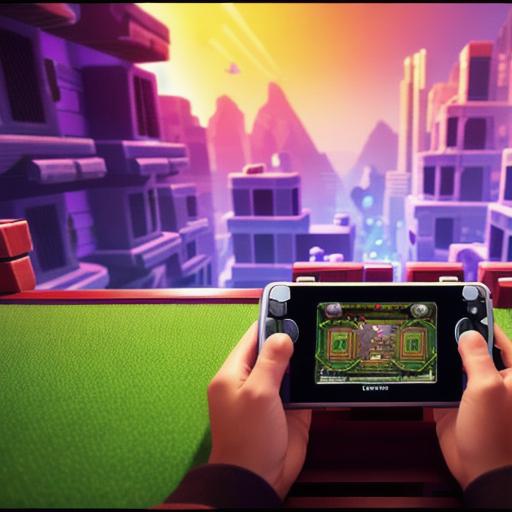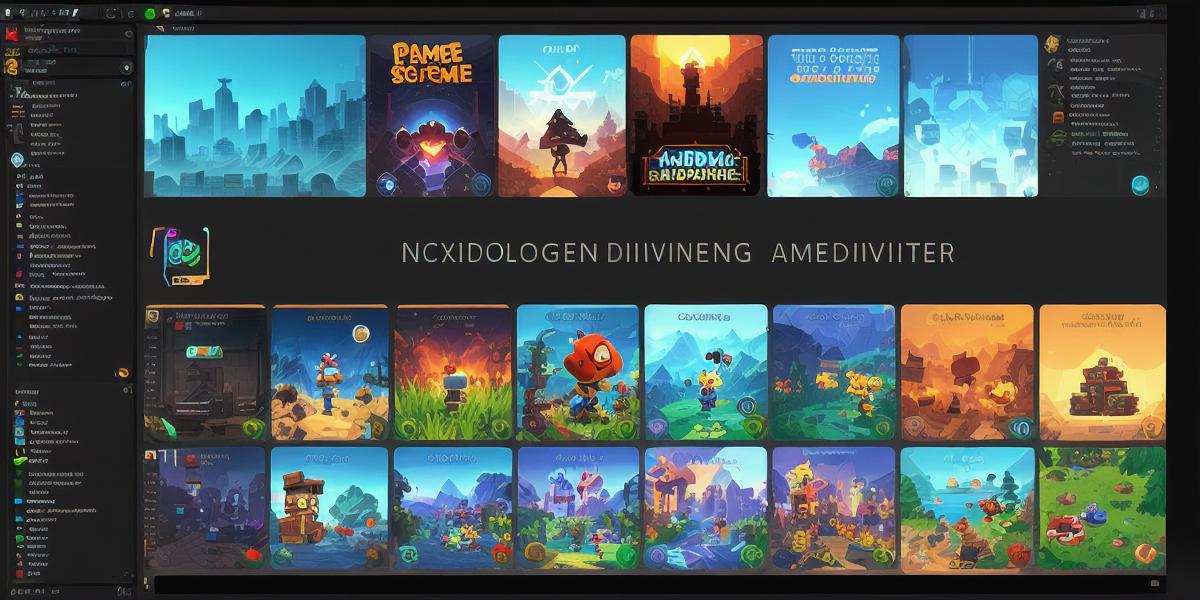If you’re passionate about game development, you may have considered creating your own indie game. However, indie game development can be a daunting and challenging process that requires a lot of hard work, dedication, and expertise. In this guide, we will explore everything you need to know to get started with indie game development, from the basics to more advanced techniques.
Introduction
Before diving into the world of indie game development, it’s important to understand what it is and why it’s becoming increasingly popular. An indie game is a game that is created by an individual or a small team without the involvement of a large corporate entity like EA or Ubisoft. Indie games are often more creative, experimental, and unique than their AAA counterparts, and they can be developed on a wide range of platforms, including PC, mobile, console, and virtual reality.
The popularity of indie games has been steadily growing over the past decade, thanks to advances in technology that have made it easier for individuals to create and distribute games. Additionally, the rise of streaming services like Twitch and YouTube Gaming has provided a new revenue stream for indie game developers, allowing them to reach a wider audience and monetize their creations.
Why Become an Indie Game Developer?
Becoming an indie game developer can be a rewarding and fulfilling career that allows you to express your creativity and passion for gaming. Here are some of the main reasons why people choose to become indie game developers:
- Creative Freedom: As an indie game developer, you have complete control over your game’s design, development, and distribution. This means you can create a game that is true to your vision, without being constrained by the limitations of a larger corporate entity.
- Lower Barriers to Entry: Indie game development requires less capital and resources than AAA game development, making it a more accessible option for people who may not have the financial means or experience to work in the industry.
- Greater Flexibility: Indie game developers can work from anywhere, at any time, and on any project they choose. This means you can work on your own terms and maintain a healthy work-life balance.
- Monetization Opportunities: With the rise of streaming services and digital distribution platforms like Steam, indie game developers have more opportunities to monetize their creations than ever before.
What Skills Do I Need to Become an Indie Game Developer?
Becoming an indie game developer requires a wide range of skills, including:
- Programming: You will need to have a solid understanding of programming languages like C++, Python, or JavaScript, depending on the platform you choose to develop for.
- Game Design: You will need to have a strong understanding of game design principles and be able to create engaging and immersive gameplay experiences.
- Art Assets: You will need to have skills in creating art assets such as characters, environments, and animations.
- Audio: You will need to have skills in creating audio assets such as sound effects, music, and voice acting.
- Project Management: You will need to be able to manage your time effectively and prioritize tasks to ensure your project stays on track.
Tools and Resources for Indie Game Development
There are many tools and resources available for indie game development that can help you get started, including:
- Unity: Unity is a popular game engine that is easy to use and supports cross-platform development, making it a great option for beginners.
- Unreal Engine: Unreal Engine is another popular game engine that is known for its advanced graphics capabilities and support for virtual reality development.
- Blender: Blender is an open-source 3D modeling and animation software that can be used to create art assets for your game.
- Audacity: Audacity is a free and open-source audio editing software that you can use to create and edit sound effects and music for your game.
- Trello: Trello is a project management tool that can help you organize and prioritize tasks, track progress, and collaborate with other team members.
Case Studies in Indie Game Development
Here are some real-life examples of successful indie games and the people behind them:
- Minecraft: Markus Persson, also known as Jeb, created Minecraft, a sandbox building game that has become one of the most popular games in history.
- Spelunky: Derek Yu created Spelunky, a classic platformer game that is known for its difficult levels and retro art style.
- Papers, Please: Nathan Mehr created Papers, Please, a dystopian adventure game where you play as an immigration officer tasked with deciding who gets to enter the country.
- The Binding of Isaac: Edmund McMillen created The Binding of Isaac, a roguelike shooter game that has become a cult classic among gamers.
FAQs

- How much time do I need to become an indie game developer?
- There is no set amount of time needed to become an indie game developer. It can take anywhere from a few months to several years, depending on your skills, experience, and the complexity of your game.
- Can I make a living as an indie game developer?
- Yes, many successful indie game developers are able to make a living through their games. However, it’s important to note that the gaming industry is highly competitive, and success is not guaranteed.
- What platforms should I develop for as an indie game developer?
- It depends on your target audience and the type of game you want to create. Some popular platforms for indie game development include PC, mobile, console, and virtual reality.
- Do I need a degree in computer science or game design to become an indie game developer?
- While a degree in these fields can be helpful, it’s not strictly necessary to become an indie game developer. Many successful indie game developers come from a variety of backgrounds and have learned their skills through online courses, tutorials, and self-study.
- What are the biggest challenges facing indie game developers?
- Some of the biggest challenges facing indie game developers include competition from larger studios, limited resources, and difficulty in marketing and distributing games. However, many indie game developers overcome these challenges through creativity, determination, and a strong online presence.
Conclusion
Indie game development is a rewarding and exciting field that offers creators the freedom to explore their imaginations and make something truly unique. With the right skills, tools, and resources, anyone can become an indie game developer and create games that are both fun and engaging. So if you have a passion for gaming and a desire to create, why not give it a try?
In conclusion, becoming an indie game developer can be a challenging yet rewarding career path. With the right skills, tools, and resources, you can create games that are both unique and engaging. Remember to stay true to your vision, work hard, and never stop learning and improving.
